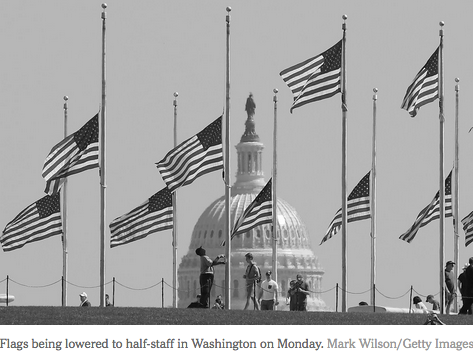WASHINGTON — In the wake of one the deadliest mass shootings in our nation’s history, perhaps the most asked question by Americans is, “Will anything change?” The simple answer is no. The more vital question is, “Why not?”
Congress is already doing what it sees as its part. Flags have been lowered, thoughts and prayers tweeted, and sometime this week it will perform the latest episode in the longest-running drama on C-Span: the moment of silence. It’s how they responded to other mass shootings in Columbine, Herkimer, Tucson, Santa Monica, Hialeah, Terrell, Alturas, Killeen, Isla Vista, Marysville, Chapel Hill, Tyrone, Waco, Charleston, Chattanooga, Lafayette, Roanoke, Roseburg, Colorado Springs, San Bernardino, Birmingham, Fort Hood and Aurora, at Virginia Tech, the Washington Navy Yard, and the congressional baseball game practice, to name too many.
In my 16 years in Congress, Mother Jones magazine counted 52 mass killings. Fewer lessons about Congress were starker than the ones I learned about why, after each one, nothing happened. The first lesson was in January 2001, shortly after I was sworn in. I wanted to introduce legislation to require safety locks on certain guns and sought the support of a fellow freshman, a Democrat from Arkansas.
“I can’t do that,” he said. “In my district, we close schools on the first day of hunting season.” I kidded him that in my suburban district, we close school when there was a big sale at the mall. That’s when I learned that all politics is local, and on the issue of guns, it’s hard to build a political bridge from Huntington, N.Y., to Huntington, Ark.
Read full article




